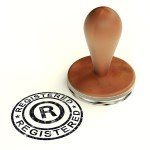PRACTICE AREAS
RATINGS
CONNECT WITH US
VIDEOS
Can My Name be our Trademark?
 A common question we get from clients is whether they can use their personal name as the trademark for their business. The quick answer is that “it depends.” You do not have a guaranteed right to use your own name as a mark for your business, but it may be possible for you to do so.
A common question we get from clients is whether they can use their personal name as the trademark for their business. The quick answer is that “it depends.” You do not have a guaranteed right to use your own name as a mark for your business, but it may be possible for you to do so.
If you are interested in using your surname (last name) as the mark for your business, you must meet a “distinctiveness” test. In other words, the law will not protect a mark that is only a surname without evidence that it has “acquired distinctiveness.” Below are five factors used to determine if acquired distinctiveness must be shown:
- Is your last name rare?
- Is it your last name or of somebody associated with the applicant?
- Does the term have an established meaning other than as a last name?
- Does the term have the “look and feel” of a last name?
- Is the style of the lettering distinctive enough to create a separate commercial impression?
In sum, if the consumer’s primary impression of the mark is that of a surname (and not a trademark), acquired distinctiveness must be proven.
If you are interested in using your first name and last name as a trademark, you can typically do so without proving acquired distinctiveness because together they are considered to be inherently unique. The same rule typically applies if you add two initials to a last name. It is important that your personal name be used in a way that is recognized by the public as identifying the source of goods or services.
If you are interested in using your name as a trademark, let us help. We can assist you with understanding whether or not acquired distinctiveness must be proven as well as determining whether your name has already been registered as a trademark.
If you are interested in learning more about selecting a trademark, contact the legal team at The Swenson Law Firm for assistance.












